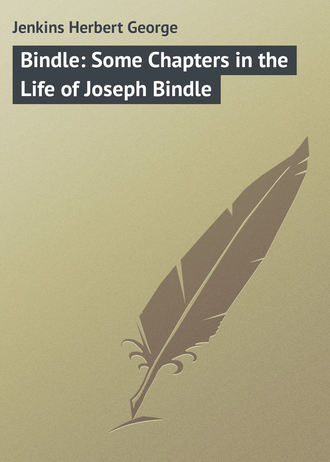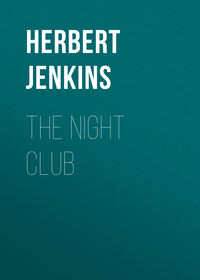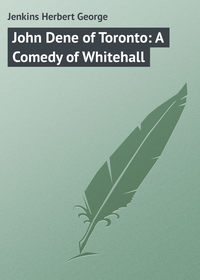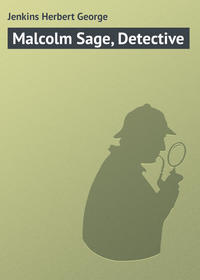 полная версия
полная версияBindle: Some Chapters in the Life of Joseph Bindle
Crime seemed obviously for the sprinter. To become a burger required experience and tools, and Bindle possessed neither. Besides, burgling involved more risks than he cared to take.
Had he paused to think, Bindle would have seen that stealing was crime; but his incurable love of adventure blinded him to all else.
"Funny thing," he mumbled as he walked down Fenton Street. "Funny thing, a daughter o' the Lord wantin' me to steal. Wonder wot ole 'Earty 'ud say."
CHAPTER II
A NOCTURNAL ADVENTURE
I
Having exchanged the clock for seven shillings and badly beaten the pawnbroker's assistant in a verbal duel, Bindle strolled along towards Walham Green in the happiest frame of mind.
The night was young, it was barely nine o'clock, and his whole being yearned for some adventure. He was still preoccupied with the subject of larceny. His wits, Bindle argued, were of little or no use in the furniture-removing business, where mediocrity formed the standard of excellence. There would never be a Napoleon of furniture-removers, but there had been several Napoleons of crime. If a man were endowed with genius, he should also be supplied with a reasonable outlet for it.
Walking meditatively along the North End Road, he was awakened to realities by his foot suddenly striking against something that jingled. He stooped and picked up two keys attached to a ring, which he swiftly transferred to one of his pockets and passed on. Someone might be watching him.
Two minutes later he drew forth his find for examination. Attached to the ring was a metal tablet, upon which were engraved the words: "These keys are the property of Professor Sylvanus Conti, 13 Audrey Mansions, Queen's Club, West Kensington, W. Reward for their return, 2s. 6d."
The keys were obviously those of the outer door of a block of mansions and the door of a flat. If they were returned the reward was two shillings and sixpence, which would bring up the day's takings to nine shillings and sixpence. If, on the other hand, the keys were retained for the purpose of —
At that moment Bindle's eye caught sight of a ticket upon a stall littered with old locks and keys, above which blazed and spluttered a paraffin torch. "Keys cut while you wait," it announced. Without a moment's hesitation he slipped the two keys from their ring and held them out to the proprietor of the stall.
"'Ow much to make two like 'em, mate?" he enquired. The man took the keys, examined them for a moment, and replied:
"One an' thruppence from you, capt'in."
"Well, think o' me as a pretty girl an' say a bob, an' it's done," replied Bindle.
The man regarded him with elaborate gravity for a few moments. "If yer turn yer face away I'll try," he replied, and proceeded to fashion the duplicates.
Meanwhile Bindle deliberated. If he retained the keys there would be suspicion at the flats, and perhaps locks would be changed; if, on the other hand, the keys were returned immediately, the owner would trouble himself no further.
At this juncture he was not very clear as to what he intended to do. He was still undecided when the four keys were handed to him in return for a shilling.
The mind of Joseph Bindle invariably responded best to the ministrations of beer, and when, half an hour later, he left the bar of the Purple Goat, his plans were formed, and his mind made up. He vaguely saw the hand of Providence in this discovery of Professor Conti's keys, and he was determined that Providence should not be disappointed in him, Joseph Bindle.
First he bought a cheap electric torch, guaranteed for twelve or twenty-four hours – the shopkeeper was not quite certain which. Then, proceeding to a chemist's shop, he purchased a roll of medical bandaging. With this he retired up a side street and proceeded to swathe his head and the greater part of his face, leaving only his eyes, nose, and mouth visible. Drawing his cap carefully over the bandages, he returned to the highway, first having improvised the remainder of the bandaging into an informal sling for his left arm. Not even Mrs. Bindle herself would have recognised him, so complete was the disguise.
Ten minutes later he was at Audrey Mansions. No one was visible, and with great swiftness and dexterity he tried the duplicate keys in the open outer door. One fitted perfectly. Mounting to the third floor, he inserted the other in the door of No. 13. The lock turned easily. Quite satisfied, he replaced them in his pocket and rang the bell. There was no answer. He rang again, and a third time, but without result.
"Does 'is own charin'," murmured Bindle laconically, and descended to the ground floor, where he rang the porter's bell, with the result that the keys were faithfully redeemed.
Bindle left the porter in a state of suppressed excitement over a vivid and circumstantial account of a terrible collision that had just taken place in the neighbourhood, between a motor-bus and a fire-engine, resulting in eleven deaths, including three firemen, whilst thirty people had been seriously injured, including six firemen. He himself had been on the front seat of the motor-bus and had escaped with a broken head and a badly-cut hand.
II
Professor Conti did not discover his loss until the porter handed him his keys, enquiring at the same time if the Professor had heard anything of the terrible collision between the motor-bus and fire-engine. The Professor had not. He mounted to his flat with heavy steps. He was tired and dispirited. In his bedroom he surveyed himself mournfully in the mirror as he undid the buckle of his ready-made evening-tie, which he placed carefully in the green cardboard box upon the dressing-table. In these days a tie had to last the week, aided by the application of French chalk to the salient folds and corners.
Professor Sylvanus Conti, who had been known to his mother, Mrs. Wilkins, as Willie, emphasised in feature and speech his cockney origin. He was of medium height, with a sallow complexion – not the sallowness of the sun-baked plains of Italy, but rather that of Bermondsey or Bow.
He had been a brave little man in his fight with adverse conditions. Years before, chance had thrown across his path a doctor whose hypnotic powers had been his ruin. Willie Wilkins had shown himself an apt pupil, and there opened out to his vision a great and glorious prospect.
First he courted science; but she had proved a fickle jade, and he was forced to become an entertainer, much against his inclination. In time the name of Professor Sylvanus Conti came to be known at most of the second-rate music halls as "a good hypnotic turn" – to use the professional phraseology.
One consolation he had – he never descended to tricks. If he were unable to place a subject under control, he stated so frankly. He was scientific, and believed in his own powers as he believed in nothing else on earth.
He had achieved some sort of success. It was not what he had hoped for; still, it was a living. It gave him food and raiment and a small bachelor flat – he was a bachelor, all self-made men are – in a spot that was Kensington, albeit West Kensington.
The Professor continued mechanically to prepare himself for the night. He oiled his dark hair, brushed his black moustache, donned his long nightshirt, and finally lit a cigarette. He was thinking deeply. His dark, cunning little eyes flashed angrily. A cynical smile played about the corners of his mouth, half hidden by the bristly black moustache.
Only that evening he had heard that his rival, "Mr. John Gibson, the English Mesmerist," had secured a contract to appear at some syndicate halls that had hitherto engaged only him.
This man Gibson had been dogging Conti for months past. The barefaced effrontery of the fellow added fuel to the fire of his rival's anger. To use an English name for a hypnotic turn upon the English music-hall stage! He should have known that hypnotism, like the equestrian and dressmaking arts, is continental, without exception or qualification. Yet this man, John Gibson, "the English Mesmerist," had dared to enter into competition with him, Professor Sylvanus Conti. Gibson descended to tricks, which placed him beyond the pale of science. He had confederates who, as "gentlemen among the audience," did weird and marvellous things, all to the glory of "the English Mesmerist."
Still brooding upon a rather ominous future, the Professor wound his watch – a fine gold hunter that had been presented to him three years previously by "A few friends and admirers" – and placed it upon the small table by his bedside, together with his money and other valuables; then, carefully extinguishing his half-smoked cigarette, he got into bed. It was late, and he was tired. A sense of injustice was insufficient to keep him awake for long, and, switching off the electric light, he was soon asleep.
From a dream in which he had just discomfited his rival, "the English Mesmerist," by placing under control an elephant, Professor Conti awakened with a start. He intuitively knew that there was someone in the room. Lying perfectly still, he listened. Suddenly his blood froze with horror. A tiny disc of light played round the room and finally rested upon the small table beside him. A moment later he heard a faint sound as of two substances coming into contact. Instinctively he knew it to be caused by his watch-chain tinkling against his ash-tray.
He broke out into a cold sweat. Moist with fear, he reviewed the situation. A burglar was in the room, taking his – the Professor's – presentation watch and chain. The thought of losing these, his greatest treasures, awakened in his mind the realisation that he must act, and act speedily. With a slow, deliberate movement he worked his right hand up to the pillow, beneath which he always kept a revolver. It seemed an eternity before he felt the comforting touch of cold metal. He withdrew the weapon with deliberate caution.
The sound of someone tiptoeing about the room continued – soft, stealthy movements that, however, no longer possessed for him any terror. A fury of anger, a species of blood-lust gripped him. Someone had dared to break into his flat. The situation became intolerable. With one swift movement he sat up, switched on the electric light, and cocked his revolver.
An inarticulate sound, half-cry, half-grumble, came from the corner by the chest of drawers. The back of the head, looking curiously like a monkish crown, flashed into a face, swathed in what appeared to be medical bandages, through which was to be seen a pair of eyes in which there was obvious terror. It was Bindle.
"Hands up, or I shoot! Up, I say."
Up went Bindle's hands.
The Professor did not recognise his own voice. Suddenly he laughed. The ludicrous expression in Bindle's eyes, the unnatural position in which he crouched, his having caught a burglar red-handed – it was all so ridiculous.
Then there came the triumphant sense of victory. The Professor was calm and collected now, as if the discovery of a burglar in his bedroom were a thing of nightly occurrence. There seemed nothing strange in the situation. The things to be done presented themselves in obvious and logical sequence. He was conscious of the dramatic possibilities of the situation.
Not so Bindle.
"This comes o' takin' advice of a 'daughter o' the Lord,'" he groaned. "Wonder wot 'Earty'll say?"
In spite of his situation Bindle grinned.
"Turn round and face the wall, quick!"
It was the Professor's voice that broke in upon Bindle's thoughts. He obeyed with alacrity and the tonsured scalp reappeared.
Carefully covering with his revolver the unfortunate Bindle, whose first effort at burglary seemed doomed to end so disastrously, Professor Conti slipped out of bed and, without removing his eyes from Bindle's back, sidled towards a small chest at the other side of the room. This he opened, and from it took a pair of handcuffs, a "property" of his profession.
"Put your hands behind your back," he ordered with calm decision.
For one brief moment Bindle meditated resistance. He gave a swift glance over his shoulder; but, seeing the determined look in his captor's eyes and the glint of the revolver, he thought better of it and meekly complied.
The handcuffs clicked and Professor Conti smiled grimly.
As he stood gazing at the wall, Bindle's mind was still running on what Mrs. Bindle would say when she heard the news. Fate had treated him scurvily in directing him to a flat where a revolver and handcuffs seemed to be part of the necessary fittings. He fell to wondering what punishment novices at burglary generally received.
He was awakened from his reverie and the contemplation of a particularly hideous wallpaper, by a sharp command to turn round. He did so, and found himself facing a ludicrous and curiously unheroic figure. Over his nightshirt Professor Conti had drawn an overcoat with an astrachan collar and cuffs. Beneath the coat came a broad hem of white nightshirt, then two rather thin legs, terminating in a pair of red woollen bedroom slippers.
Bindle grinned appreciatively at the spectacle. He was more at his ease now that the revolver had been laid aside.
"You're a burglar, and you're caught."
The Professor showed his yellow teeth as he made this pronouncement. Bindle grinned. "You'll get five years for this," proceeded the Professor encouragingly.
"I was just wonderin' to meself," responded Bindle imperturbably. "The luck's wi' you, guv'nor," he added philosophically. "Fancy you 'avin' 'andcuffs as well as a revolver! Sort o' Scotland Yard, this 'ere little 'ole. 'Spose you get a touch of nerves sometimes, and likes to be ready. Five years, you said. Three was my figure. P'raps you're right; it all depends on the ole boy on the bench. Ever done time, sir?" he queried cheerfully.
Professor Conti was too intent upon an inspiration that had flashed upon him to listen to his visitor's remarks. Suddenly he saw in this the hand of Providence, and at that moment Bindle saw upon the chest of drawers one of the Professor's cards bearing the inscription:
PROFESSOR SYLVANUS CONTI,Hypnotist and Mesmerist13 AUDREY MANSIONS,QUEEN'S CLUB,WEST KENSINGTON,LONDON, WHe turned from the contemplation of the card, and found himself being regarded by his captor with great intentness. The ferret-like eyes of the Professor gazed into his as if desirous of piercing a hole through his brain. Bindle experienced a curious dreamy sensation. Remembering the card he had just seen, he blinked self-consciously, licked his lips, grinned feebly, and then half closed his eyes.
Professor Conti advanced deliberately, raised his hands slowly, passed them before the face of his victim, keeping his eyes fixed the while. Over the unprepossessing features of Bindle there came a vacant look, and over those of the Professor one of triumph. After a lengthy pause the Professor spoke.
"You are a burglar. Repeat it."
"I am a burglar," echoed Bindle in a toneless voice.
The Professor continued: "You tried to rob me, Professor Sylvanus Conti, of 13 Audrey Mansions, Queen's Club, West Kensington, by breaking into my flat at night."
In the same expressionless voice Bindle repeated the Professor's words.
"Good," murmured Conti. "Good! Now sit down." Bindle complied, a ghost of a grin flitting momentarily across his face, as the Professor turned to reach a chair which he placed immediately opposite to the one on which Bindle sat, and about two yards distant. With his eyes fixed, he commenced in a droning tone:
"You have entered my flat with the deliberate and cold-blooded intention of robbing, perhaps of murdering me. It is my intention to write a note to the police, which you will yourself deliver, and wait until you are arrested. Now repeat what I have said."
In a dull, mechanical voice Bindle did as he was told. For a full minute the Professor gazed steadily into his victim's eyes, made a few more passes with his hands, and then, rising, went to a small table and wrote:
DEAR SIR,
The bearer of this letter is a burglar who has just broken into my flat to rob me. I have placed him under hypnotic control, and he will give himself up. You will please arrest him. I will 'phone in the morning.
Yours faithfully,
SYLVANUS CONTI.
Sealing and addressing the letter, the Professor then removed the handcuffs from Bindle's wrists, bade him rise, and gave him the envelope.
"You will now go and deliver this note," he said, explaining with great distinctness the whereabouts of the police-station. Bindle was proceeding slowly towards the door, when the Professor called upon him to stop. He halted abruptly. "Show me what you have in your pockets."
Bindle complied, producing the presentation watch and chain, a gold scarf-pin, a pair of gold sleeve-links, one diamond and three gold studs, and a diamond ring. He omitted to include the Professor's loose change, which he had picked up from the small table by the bedside.
For a moment the Professor pondered; then, as if coming to a sudden determination, he told Bindle to replace the articles in his pocket, and dismissed him.
Having bolted the door, Professor Conti returned to his bedroom. For half an hour he sat in his nondescript costume, smoking cigarettes. He was thoroughly satisfied with the night's work. It had been ordained that his flat should be burgled, and he, Sylvanus Conti, professor of hypnotism and mesmerism, seizing his opportunity, had diverted to his own ends the august decrees of destiny.
He pictured Mr. William Gibson reading the account of his triumph in the evening papers. He saw the headlines. He himself would inspire them. He saw it all. Not only would those come back who had forsaken him for "the English Mesmerist," but others also would want him. He saw himself a "star turn" at one of the West-end halls.
He saw many things: fame, fortune, a motor-car, and, in the far distance, the realisation of his great ambition, a scientific career. In a way he was a little sorry for the burglar, the instrument of fate.
Throwing off his overcoat and removing his slippers, the Professor switched off the light, got into bed, and was soon asleep.
CHAPTER III
THE HYPNOTIC FIASCO
I
Whilst Professor Conti was building elaborate castles in the air, Bindle with tense caution crept down the three flights of stairs that led to the street.
Everything was quiet and dark. As he softly closed the outer door behind him he heard a clock striking three. Swiftly he removed the bandages that swathed his head, tucked them in his pockets and stepped out briskly.
He wanted to think, but above all he wanted food and drink.
As a precaution against the attentions of the police he began to whistle loudly. None, he argued, would suspect of being a burglar a man who was whistling at the stretch of his power. Once he stopped dead and laughed.
"Joe Bindle," he remarked, "you been burglin', and you're mesmerised, an' you're goin' to give yerself up to the police, an' don't you forget it, as it might 'urt the Professor's feelings."
He slapped his knee, laughed again, recommenced whistling, and continued on his way.
Occasionally his hand would wander in the direction of the left-hand pocket of his coat, when, feeling the Professor's watch and chain and the note to the police, his face would irradiate joy.
He must think, however. He could not continue walking and whistling for ever. He must think; and with Bindle to think it was necessary that he should remain still. This he dare not do for fear of arousing suspicion.
Once in turning a corner suddenly he almost collided with a policeman.
"Tryin' to wake the whole place?" enquired the policeman. "Where are you goin', makin' such a row about it?"
"To 'ell, same as you, ole sport," responded Bindle cheerfully. "Goo'-night! See yer later!"
The policeman grumbled something and passed on. Presently Bindle saw the lights of a coffee-stall, towards which he walked briskly. Over two sausages and some bacon he reviewed the situation, chaffed the proprietor, and treated to a meal the bedraggled remnants of what had once been a woman, whom he found hovering hungrily about the stall.
When he eventually said "Good-mornin'" to his host and guest, he had worked out his plan of campaign.
He walked in the direction of the police-station, having first resumed his bandages. Day was beginning to break. Seeing a man approaching him, he quickened his pace to a run. As he came within a few yards of the man, who appeared to be of the labourer class, he slackened his pace, then stopped abruptly.
"Where's the police-station, mate?" he enquired, panting as if with great exertion.
"The police-station?" repeated the man curiously. "Straight up the road, then third or fourth to the right, then – "
"Is it miles?" panted Bindle.
"'Bout quarter of a mile, not more. What's up, mate?" the man enquired. "Been 'urt?"
"Quarter of a mile, and 'im bleedin' to death! I got to fetch a doctor," Bindle continued. Then, as if with sudden inspiration, he thrust Professor Conti's letter into the astonished man's hands.
"In the name of the law I order yer to take this letter to the police-station. I'll go for a doctor. Quick – it's burglary and murder! 'Ere's a bob for yer trouble."
With that, Bindle sped back the way he had come, praying that no policeman might see him and give chase.
The workman stood looking stupidly from the letter and the shilling in his hand to the retreating form of Bindle. After a moment's hesitation he pocketed the coin, and with a grumble in his throat and the fear of the Law in his heart, he turned and slowly made his way to the police-station.
II
When Professor Conti awoke on the morning of the burglary, he was horrified to find, from the medley of sounds without, produced by hooters and bells, that it was half-past eight.
Jumping quickly out of bed, he shaved, washed, and dressed with great expedition, and before nine was in a telephone call-box ringing up the police. On learning that his note had been duly delivered, he smiled his satisfaction into the telephone mouthpiece.
Fortunately he was known to the sergeant who answered him, having recently given his services at an entertainment organised by the local police. After some difficulty he arranged that the charge should be taken through the telephone, although a most irregular proceeding.
"He's givin' us a lot of trouble, sir. Talks of having been given the note, and about a burglary and attempted murder," volunteered the sergeant.
"Ha, ha, ha!" laughed the Professor.
"Ha, ha, ha!" echoed the sergeant, and they rang off.
In spite of his laugh, the Professor was a little puzzled by the sergeant's words. The man should still be under control. However, he reasoned, the fellow was caught, and he had other and more important things to occupy his mind. Hailing a passing taxi, he drove to the offices of The Evening Mail. Sending up his card with the words IMPORTANT NEWS written upon it, he gained immediate access to the news-editor.
Within ten minutes the story of the hypnotised burglar was being dictated by the editor himself to relays of shorthand writers. The police had, on the telephone, confirmed the story of a man having given himself up, and the whole adventure was, in the argot of Fleet Street, "hot stuff."
By half-past eleven the papers were selling in the streets, and the Professor was on his way to the police-court. He had been told the case would not come on before twelve. As his taxi threaded its way jerkily westward, he caught glimpses of the placards of the noon edition of The Evening Mail, bearing such sensational lines as:
MESMERISM EXTRAORDINARYAN AMAZING CAPTUREALLEGED BURGLAR HYPNOTISEDHe smiled pleasantly as he pictured his reception that evening, as an extra turn, at one of the big music-halls.
He fell to speculating as to how much he should demand, and to which manager he should offer his services. "The Napoleon of Mesmerists," was the title he had decided to adopt. Again the Professor smiled amiably as he thought of the column of description with headlines in The Evening Mail. He had indeed achieved success.
III
The drowsy atmosphere of the West London Police Court oppressed even the prisoners. They came, heard, and departed; protagonists for a few minutes in a drama, then oblivion. The magistrate was cross, the clerk husky, and the police anxiously deferential, for one of their number had that morning been severely censured for being unable to discriminate between the effects upon the human frame of laudanum and whisky.







